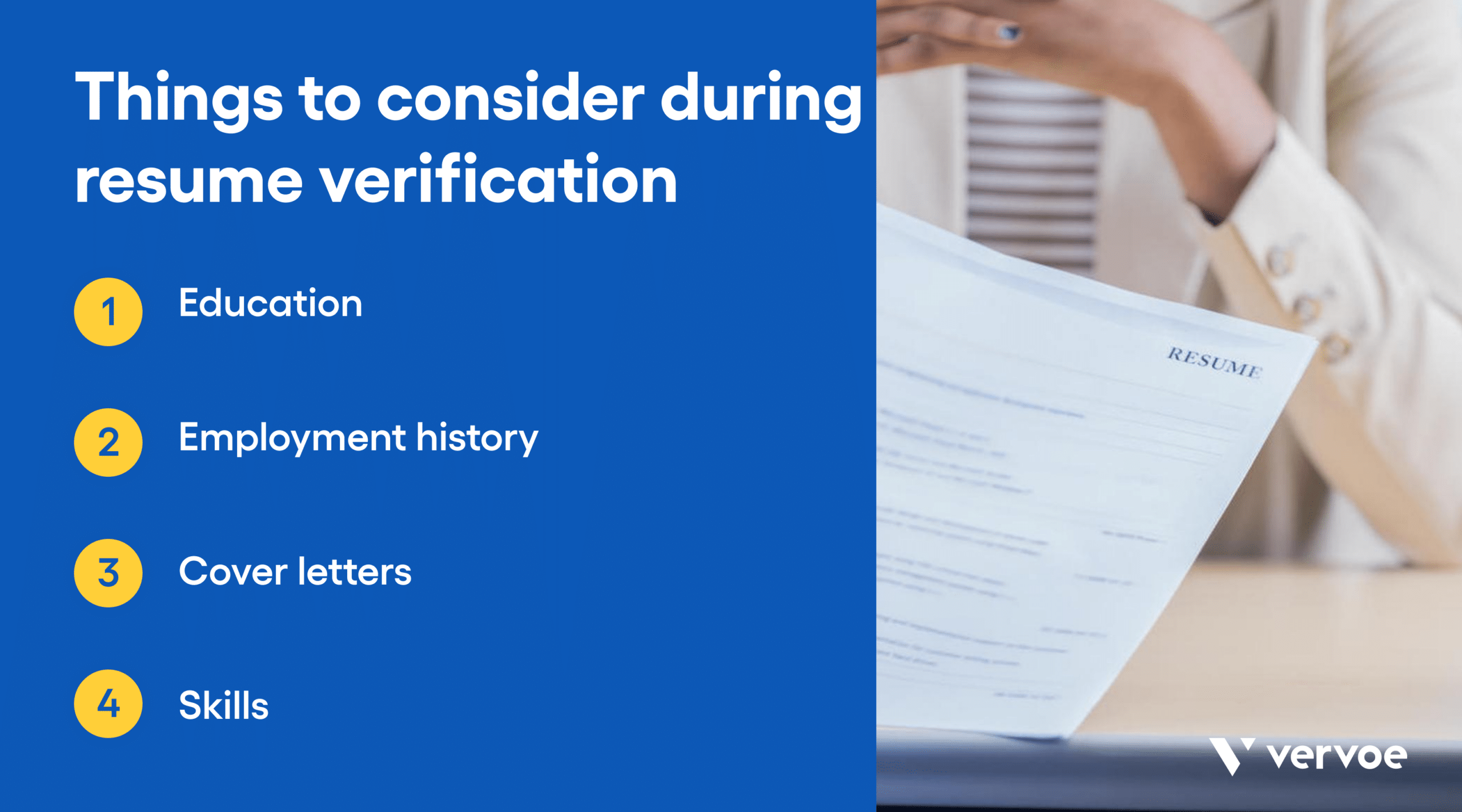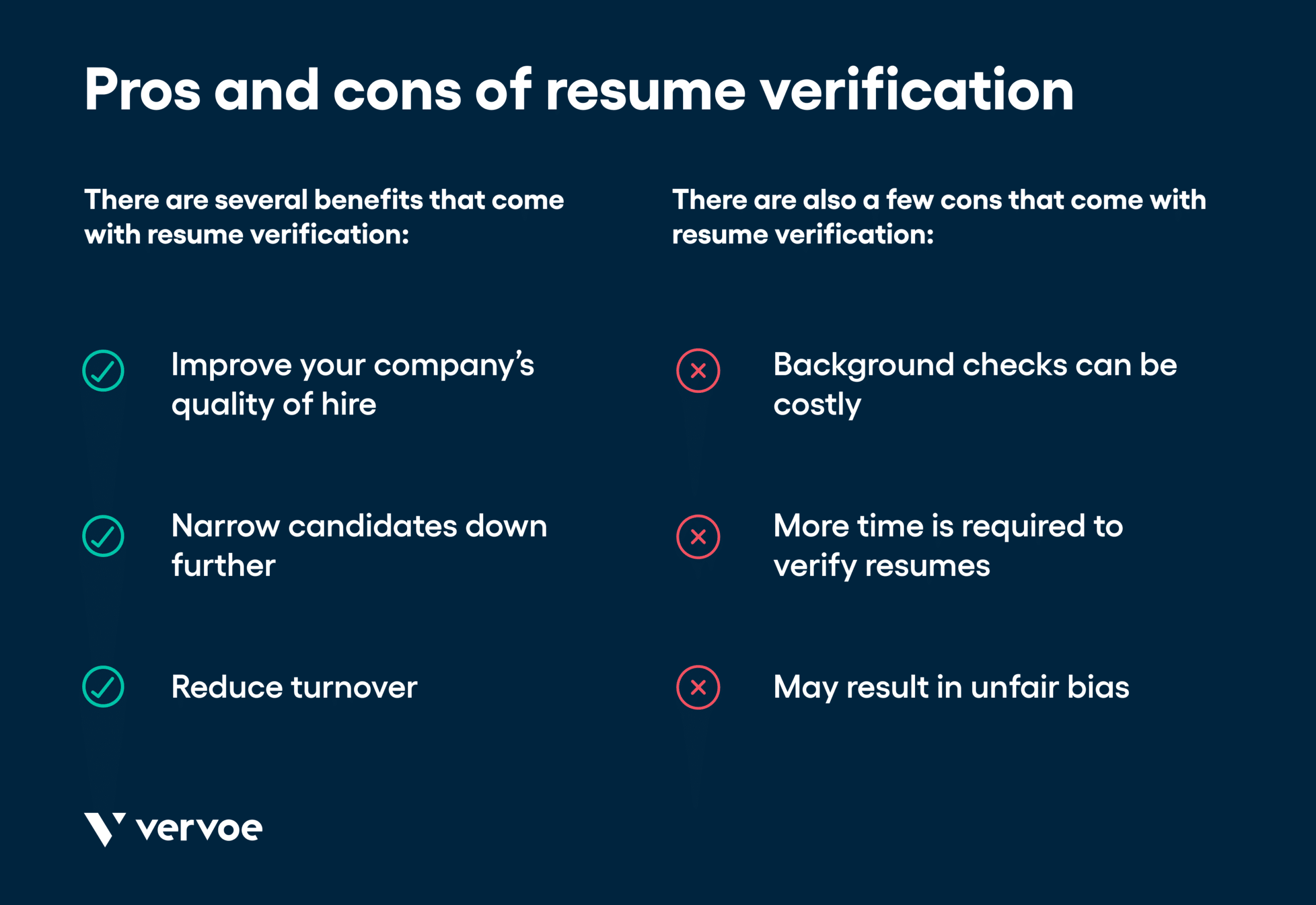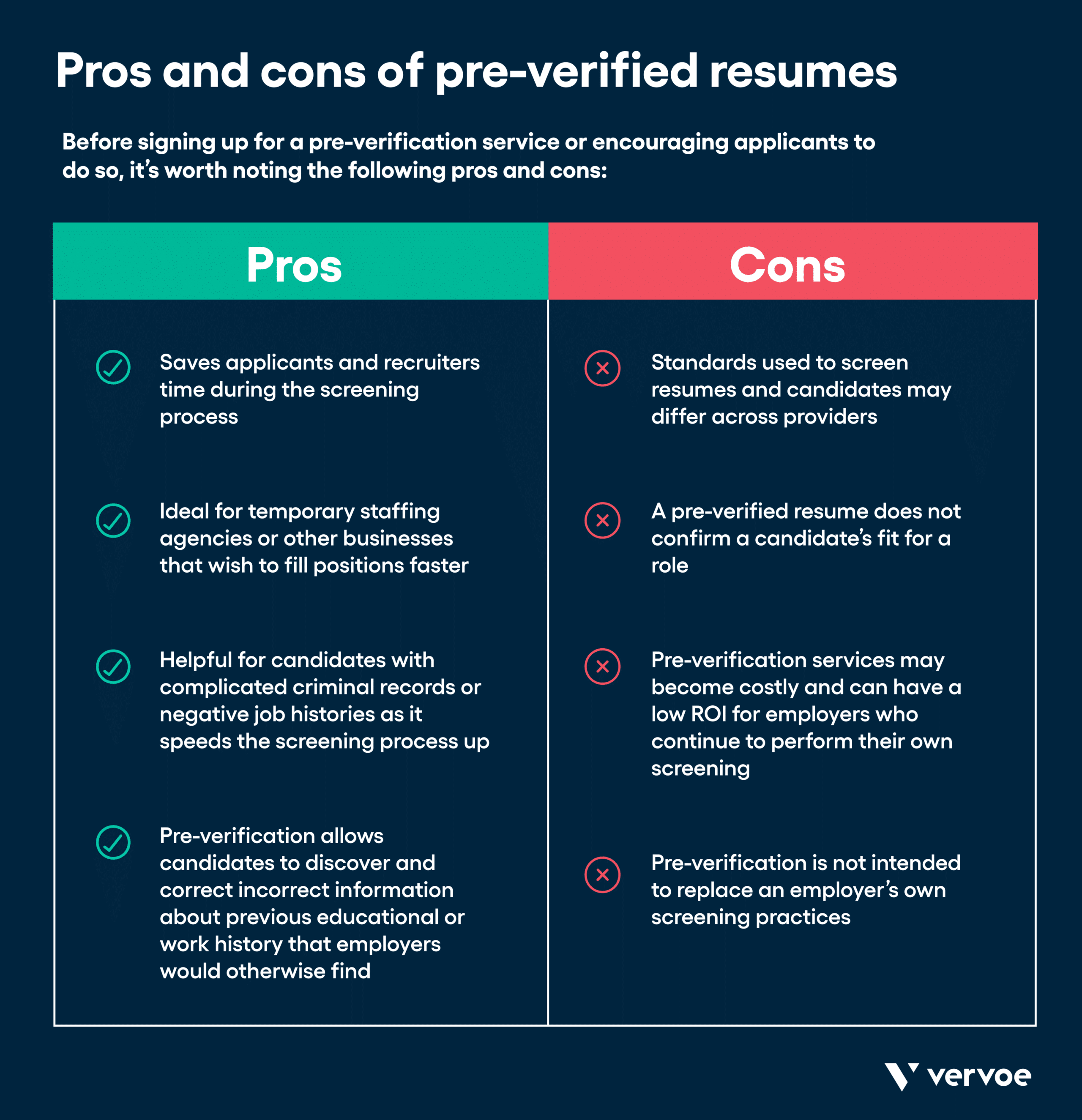Resumes typically include a candidate’s related education, skills, experience, certifications, and/or accomplishments for the specific role they’re applying for. While these details are important and may seem to offer all the information you need to make a hiring decision or move applicants to the next step in the recruitment funnel, it’s always best practice to verify resumes first to account for any “inaccuracies” candidates may have purposely included to make their application look better.
Unfortunately, this is more common than recruiters would like to believe. According to a 2017 report, nearly 85% of employers found that applicants lied on their resumes or applications, usually by misrepresenting themselves in some way, such as exaggerating their experience or mastery of certain skills.
With that said, if recruiters do not verify resumes, the dishonest ones will likely slip through the screening process, significantly increasing the chances of a bad hire.
In this article, we’ll cover what resume verification is, what to consider during the process, how to decide whether it’s right for your organization, and the pros and cons of pre-verified resumes.

What is resume verification?
Resume verification is essentially the process of performing a “resume background check” to ensure the information provided on applications is as true and accurate as possible. Doing so will prevent recruiters from making poor hiring decisions while confirming selected candidates are actually qualified for the role.
What to consider during resume verification
While what you ultimately choose to verify with resumes may differ between employers, beyond the standard background and reference checks, the following elements may be worth scrutinizing further:
Education
According to Glassdoor, educational background is one of the common areas in which applicants stretch the truth or are outright dishonest about. With that said, it’s worth either calling the candidate’s former university or using a third-party service to confirm their attendance and degree status.
Employment history
Contact previous employers (if the candidate is okay with you doing so), to verify their official dates of employment and/or job titles/roles while they worked there. In some cases, candidates may be too ashamed to show gaps in employment or less impressive titles in their resumes, and try to exaggerate these details.
Cover letters
Although some employers — and applicants — believe that a cover letter can tell you the same information as a resume, it can actually reveal much more than that.
For example, if the resume you receive from an applicant seems perfect, but is paired with a cover letter riddled with errors, that should be a sign that the candidate is not being 100% truthful about some of their skills.
Skills
Not sure if an applicant really has the experience they claim they do? A skills assessment will not only help you identify whether they have the required skills you’re looking for but will also test their mastery of them. This ensures that you can be confident knowing how qualified candidates actually are for a role.
Skills tests can come in various formats and may include unique questions or tasks related to the responsibilities of the role the candidate is applying for. For example, with some skills evaluations, you may see tasks such as:
- Job simulations or similar immersive experiences to see how well an applicant does when faced with a real-life scenario
- Psychometric assessments to identify soft skills such as emotional intelligence and leadership
LinkedIn and other social media
Sometimes, it may be worth screening other aspects of an applicant’s background, such as their LinkedIn and other social media profiles and how they represent themselves online. Social media can offer another dimension to candidates and give you insights into how their personal lives may influence their professional ones and vice versa.
However, you’ll want to be careful when screening using this method; sometimes, seeing a candidate’s political views, hobbies and interests, and who they associate with may trigger unconscious bias.
Behavioral interviewing
If everything else in a candidate’s resume seems to check out and they make it to the interview stage, a final way you can verify whether the information on their CV is true is by asking detailed questions during the process. The more in-depth their answers, the more likely they’ve been honest about their experiences and skills.
Should employers do resume verification?
There are several benefits that come with resume verification, some of which we’ve already covered above:
- Improve your company’s quality of hire
- Narrow candidates down further
- Reduce turnover
However, there are a few cons that come with resume verification that may have you think twice before implementing it with your current hiring practices:
- Background checks can be costly
- More time is required to verify resumes
- May result in unfair bias
Fortunately, there are several tools and resources that allow businesses to overcome some of these disadvantages, such as pre-verifying resumes.
Pre-verified resumes
As you may have gathered from the pros and cons list above, some recruiters will argue that the process of verifying resumes on top of screening them simply takes too much time, especially in hiring funnels in which the time to fill metric is already above average.
For that reason, an increasing number of employers are ready to implement solutions such as pre-verified resumes, in which a third party performs the resume verification process for an applicant before their application is submitted.
Essentially, candidates can enlist the help of a background checking company to confirm their education, work history, and more based on the information provided on their resume. If verified, a seal of verification is added to their profile, which can then be shared with potential employers to show they have been vetted.
But this service isn’t just restricted to candidates; employers can also take advantage of it as well, signing up with companies that offer resources for screening or additional background checks.
Pros and cons of pre-verified resumes
Before signing up for a pre-verification service or encouraging applicants to do so, it’s worth noting the following pros and cons:
Pros
- Saves applicants and recruiters time during the screening process
- Ideal for temporary staffing agencies or other businesses that wish to fill positions faster
- Helpful for candidates with complicated criminal records or negative job histories as it speeds the screening process up
- Pre-verification allows candidates to discover and correct incorrect information about previous educational or work history that employers would otherwise find
Cons
- Standards used to screen resumes and candidates may differ across providers
- A pre-verified resume does not confirm a candidate’s fit for a role
- Pre-verification services may become costly and can have a low ROI for employers who continue to perform their own screening
- Pre-verification is not intended to replace an employer’s own screening practices
Final Thoughts
Resume verification, or CV verification, is the process of screening resumes and candidate responses for their honesty and accuracy. Doing so allows recruiters to further reduce a larger candidate pool, avoid bad hires, and identify candidates truly qualified for particular roles.
While resume verification comes with a few downsides, such as more time and money spent screening, there are plenty of solutions that limit their impact on the overall hiring process, such as pre-verifying resumes through third parties.























